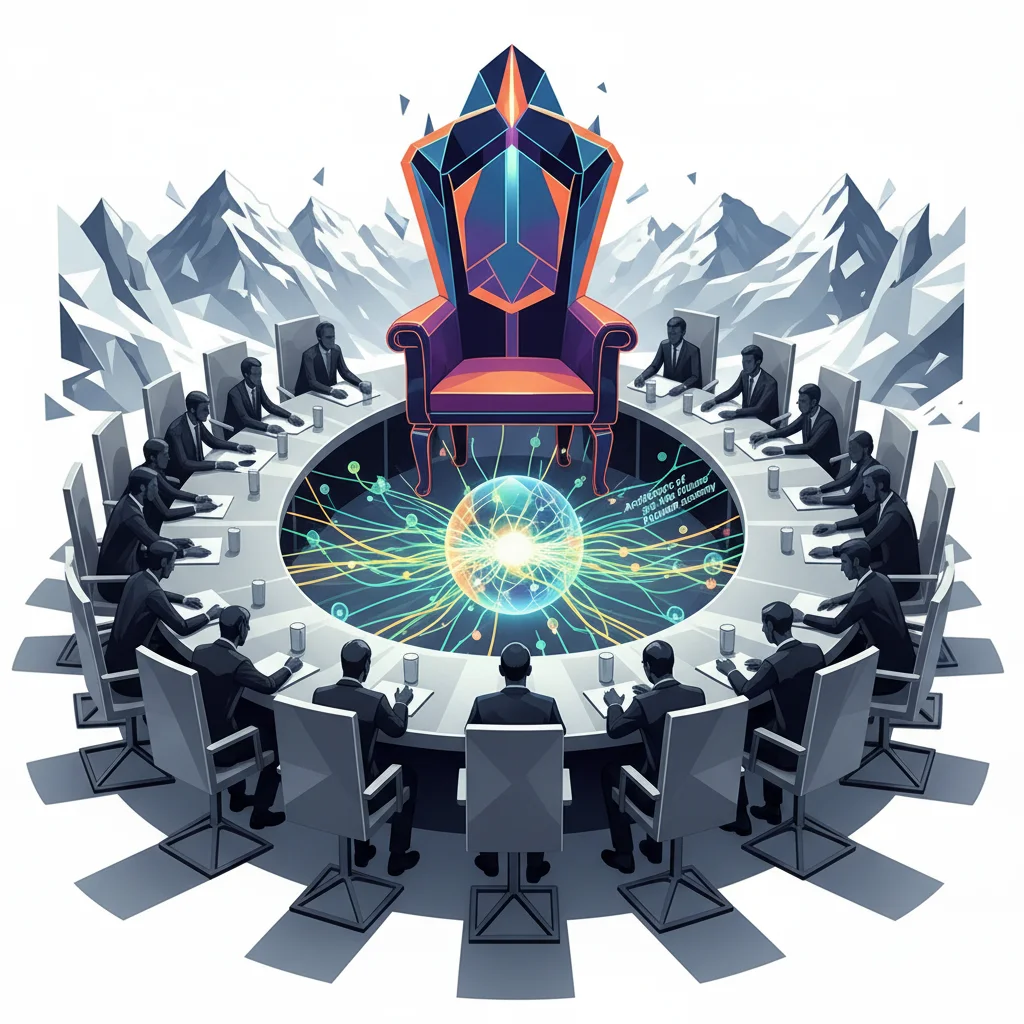
The Empty Chair at Davos: Why Global Elites Are Ignoring the Architects of the Future Economy
Every January, the world’s attention turns to a small town in the Swiss Alps. Davos, the host of the World Economic Forum (WEF) Annual Meeting, becomes the global epicenter of power and influence. Here, against a backdrop of pristine snow, heads of state, Fortune 500 CEOs, and the titans of traditional finance convene to discuss the world’s most pressing challenges and, ostensibly, to chart a course for the future. Yet, a crucial group is consistently underrepresented in these high-altitude dialogues: the very innovators and founders who are actively building that future.
This glaring omission was recently highlighted in a poignant letter to the Financial Times by Ella Cantlay, Chief of Staff at OPUS, a global founders community. She argues that while Davos purports to tackle the future of the global economy, it often fails to give a meaningful seat at the table to the entrepreneurs forging the “new economy.” These are the individuals pioneering transformative fields like fintech, decentralized finance, and blockchain technology—the very forces redefining money, markets, and commerce. The question is no longer whether Davos should open its doors, but what it risks by keeping them closed.
The Gilded Gates of the World Economic Forum
To understand the problem, one must first understand the nature of Davos. The WEF Annual Meeting is an exclusive, invitation-only event. Membership and attendance come with a staggering price tag, often running into the hundreds of thousands of dollars for top-tier corporate partnership. According to a report by The Guardian, basic entry can cost around $50,000, with higher-level partnership packages reaching upwards of $600,000. This financial barrier alone effectively excludes the vast majority of startup founders and early-stage innovators, who operate on lean budgets and venture capital, not massive corporate expense accounts.
The result is a self-perpetuating cycle of incumbent perspectives. The conversations are dominated by those who have mastered the current economic system, not those who are building its replacement. While discussions about digital transformation and financial technology certainly take place, they often occur in a theoretical vacuum, lacking the gritty, on-the-ground insights of those actually writing the code, challenging the regulations, and winning over the first wave of users. The dialogue becomes one of observation rather than participation, of analyzing disruption from a safe distance rather than collaborating with the disruptors themselves.
The New Economic Vanguard vs. The Old Guard
The “new economy” is not merely a buzzword; it represents a fundamental shift in how value is created, exchanged, and managed. It is decentralized, digitally native, and user-centric. It challenges the traditional, top-down structures of banking and finance that have governed the world for centuries. The innovators leading this charge think in terms of protocols, not policies; networks, not nations; and smart contracts, not traditional legal agreements.
To illustrate the stark contrast between the Davos establishment and the builders of this new economy, consider the following comparison:
| Characteristic | The Davos Establishment (Old Guard) | The New Economy Builders (Vanguard) |
|---|---|---|
| Operating Model | Centralized, hierarchical, top-down control. | Decentralized, network-based, bottom-up participation. |
| Focus of Innovation | Incremental improvements to existing systems (e.g., better banking apps). | Fundamental disruption of core systems (e.g., decentralized lending protocols). |
| Key Technologies | Legacy infrastructure, cloud computing, big data analytics. | Blockchain, AI/ML, zero-knowledge proofs, smart contracts. |
| Approach to Regulation | Shaping policy to protect existing market share and stability. | Navigating and often challenging existing regulatory frameworks. |
| Source of Influence | Institutional power, market capitalization, political connections. | Technological innovation, community adoption, network effects. |
This table highlights a fundamental cultural and operational chasm. The Old Guard seeks to manage and optimize the known, while the Vanguard is busy discovering and building the unknown. Without a bridge between these two worlds, any conversation about the future of the global economy is incomplete at best and dangerously misguided at worst.
The High Cost of an Echo Chamber
The exclusion of new economy founders from elite forums like Davos has tangible, negative consequences that extend far beyond the Swiss Alps. When policymakers and corporate leaders operate in an echo chamber, they develop critical blind spots.
First, it leads to ill-informed regulation. Lawmakers, guided by incumbent lobbyists and an incomplete understanding of technologies like blockchain, may enact rules that stifle innovation or, conversely, fail to address real risks. The ongoing global debate around cryptocurrency regulation is a prime example, where a lack of nuanced understanding has led to a patchwork of confusing and often counterproductive policies. As a report from the IMF suggests, a globally coordinated and well-informed approach is essential, something that requires direct dialogue with the industry’s builders.
Second, it creates missed opportunities for collaboration. Traditional financial institutions could benefit immensely from the agility and technological prowess of fintech startups. These startups, in turn, need the scale, capital, and regulatory expertise of established players. By remaining in separate orbits, both sides lose. The result is a slower, more fragmented evolution of our financial system, impacting everything from retail investing and trading platforms to global payment rails.
Finally, and most importantly, it erodes the legitimacy and relevance of institutions like the WEF. How can an organization claim to be “committed to improving the state of the world” if it ignores the very people building the tools that will define the next century of global economics? The conversation becomes an academic exercise, detached from the powerful, technology-driven currents reshaping society from the ground up.
Building a Bridge: A Practical Path to Inclusion
As Ella Cantlay’s letter implies (source), the solution isn’t to dismantle Davos but to evolve it. Opening the doors is not about charity; it is a strategic imperative. The WEF could implement several concrete measures to bridge this gap:
- Founder Fellowships: Create a subsidized or fully-funded program that identifies and invites the world’s most promising new-economy founders. This would remove the financial barrier and formally recognize their contribution.
- Reverse Mentorship Programs: Pair startup founders with CEOs of legacy corporations. The goal wouldn’t be for the CEO to mentor the founder, but the other way around. Imagine a blockchain protocol architect explaining the intricacies of decentralized governance to the head of a central bank.
- Dedicated Innovation Tracks: Move beyond theoretical panels on “The Future of Finance” and create hands-on, workshop-style sessions led by founders, where they can demo their technology and debate practical implementation with policymakers and investors.
- Integrate, Don’t Isolate: Avoid creating a “startup ghetto” at the event. The key is to integrate these new voices into the main agenda, ensuring they are part of the core conversations about the global economy, not siloed into a “tech corner.”
By taking such steps, Davos could transform from a platform for the powerful into a true nexus of the present and future, where the wisdom of experience meets the energy of innovation. The impact on global finance, technology, and policy could be profound.
The Future of Global Dialogue is Inclusive
Ultimately, the debate over who gets a seat at the table in Davos is a microcosm of a much larger shift in the global landscape. The era of top-down, centralized control is waning, challenged by a new paradigm of decentralized networks and permissionless innovation. Power and influence are no longer derived solely from the size of a company’s market cap on the stock market or the title on a business card, but from the strength of one’s ideas and the utility of the technology one builds.
Institutions that fail to recognize this shift will inevitably become relics. The future of the global economy will be written in code as much as it is in legislation. It will be shaped by algorithms, smart contracts, and decentralized autonomous organizations. To effectively guide this transition, the leaders of today must be in constant, meaningful dialogue with the builders of tomorrow. The first step is simple: open the door and invite them in.


